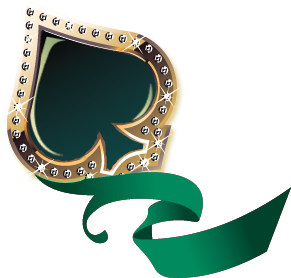
Casino Solitaire - Our Story
The three founders of Solitairus Inc and the game, Casino Solitaire, each has extensive gaming experience. One spent over 20 years in marketing, one operated bingo halls for many years and the last founder, was Vice President of Gaming for the Ontario Lottery and Gaming Corporation for several years.
On a beautiful
afternoon in 2012, two of the partners enjoyed a coffee
and some stimulating discussion on the future of gaming.
And one asked the other, “did you ever wonder why the
most popular card game in the world, Solitaire, has
never been monetized for gaming?”
That simple question
led us on a complex journey of discovery.
We did our homework and
discovered that while there were many versions of
Solitaire online being played, none of them were
approved by gaming regulators in a legal jurisdiction.
We formed Solitairus Inc with the purpose of building a
game that could be approved by regulators for online and
play on a slot machine at bricks and mortar casinos.
Our research uncovered
that “game historian David Parlett has written that the
classic Solitaire likely developed in the Baltic in the
18th century, possibly as a form of fortune telling,
during a wave of renewed interest in tarot and
cartomancy. Hundreds of variants of Solitaire exist,
each with a curious name tied to a range of references
from Athena to Napoleon. Note that names for the game
vary around the world, and in many parts of Europe the
name of the game is Patience. The links between
aloneness, duration and stillness have been there since
the beginning.”
Our best guestimates
indicated that there were over 2 billion games of
Solitaire played daily. This mass embracing of the game
really took hold in the early 1990’s.
“Microsoft Solitaire”
was released in May of 1990, as one of two built-in
games in Microsoft Windows (the other being
“Minesweeper”). The game opens on a bright-green
background, the felt-green of a professional card table
that recalls a casino. In an interview in the Washington
Post, Libby Duzan, Microsoft’s lead product manager for
entertainment, claimed that “Solitaire” was included in
Windows 3.0 to “soothe people intimidated by the
operating system.” The game had the added bonus of
teaching people to use a mouse instead of just a
keyboard. Microsoft admitted that for years that the
most-used application in Windows was “Solitaire.”
So we confirmed what we
already knew anecdotally that Solitaire was played a lot
by a lot of people.
We developed a strategy
for the game that would ensure players were receiving
value (or time on device) when they played the game and
set about to crack the math so that a regulator would
approve the game as all casino slot games must proof the
house advantage (expected return to a player) on their
game so players don’t get cheated.
It was at this point
that we hit a brick wall. Some of the best casino math
minds are Asian and had never heard of Solitaire and
therefore were ill-equipped to solve the problem. More
research delivered the bad news that Solitaire was one
of the most complex card games on the planet with
variables in every game of n72. We were told that it
would take 104 man years of math working at the solution
24 hours a day. What we didn’t know when we started was
that many of the world’s finest math minds had been
trying to solve this problem for years.
Serendipitously, at the
same time, we ran into one of the infamous card counter
brainiacs from MIT. For the purposes of this, let’s call
him Frank (as he still card counts in Las Vegas) --
whose adventures were played out on the big screen with
Kevin Spacy in the movie 21.
As an 18 year veteran
of the casino industry, Frank has been involved in all
aspects of gaming, from advantage player/manager with
the infamous M.I.T Blackjack teams, to a consultant to
the “house” in the capacity of gaming mathematician and
data scientist. Frank has been a visiting lecturer at
DUKE, Clemson, and Michigan State Universities. He’s
also a published author in the game-theory arena, with
an emphasis on economic applications, and is a
contributor to many casino gaming and financial sites
and publications, including WizardofOdds.com, Forbes,
and Bloomberg.
While initially, we
were again told it couldn’t be done, over the course of
15 months, Frank and his partner who also is part of the
MIT card-counting society identified the perfect basic
strategy for playing Solitaire and went on to build this
logic into a simulator and played 25 billion games of
once through the deck and 25 billion games of 3 times
through the deck Solitaire. The results provided our
company with the information we needed to give
regulators the confidence to approve our game and we
went on to receive 2 patents from the US Trademark and
Patent Office granting us protection on our invention –
Industrial Patent US 8,721,415,B2 and Design Patent US
D713,469. The work also proves that Casino Solitaire is
a skill-based game making it legal to play online.
Not all jurisdictions
allow skill-based games online and we are currently
filtering out the players that are not eligible to
cash-out in the following areas:
US states: AZ, AK, CT,
DE, FL, IL, LA, MD, MT, SC, SD, & TN.
Other countries:
Cyprus, Poland, North Korea, United Arab Emirates,
Singapore, Brunei, & Cambodia.
It’s been a great
journey and we hope you enjoy our game as much as we
enjoyed building it.








